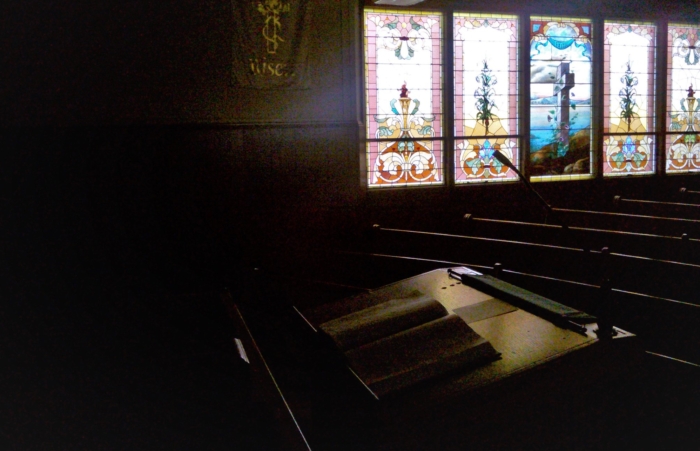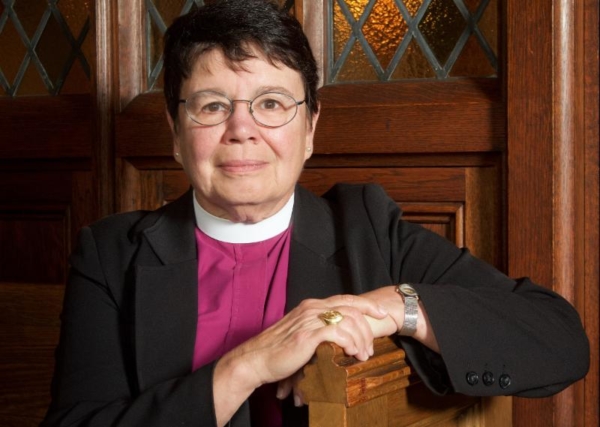As COVID-19 rages into its third year, Diocese of Chicago launches mini-sabbatical program to address clergy burnoutPosted Jan 19, 2022 |
|
[Episcopal News Service] The Diocese of Chicago is launching a mini-sabbatical program for its clergy and lay employees, encouraging them to take a week of paid time off to rest in an effort to address pandemic-related exhaustion and prevent burnout. Recognizing that priests, deacons and church workers have borne the heavy emotional loads of others throughout the pandemic, a mini-sabbatical might give them time to care for themselves, said Assisting Bishop Chilton Knudsen, who devised the plan.
“The motive for this is largely pastoral,” Knudsen told Episcopal News Service. “So many clergy and church workers have been under significant stress during this pandemic time. They have been trying hard to offer pastoral care to distressed, grieving and frightened people, but at the same time have also experienced the impact of the pandemic on their own lives and families. Because this is happening to all of us, it is not like the usual ups and downs in congregational life.”
With the pandemic about to enter its third year, the United States has reported record numbers of cases in recent days; 1.08 million were reported on Jan. 18. The number of patients hospitalized with COVID-19 is also at its highest ever. National health officials expect case counts to remain high throughout January.
Knudsen is asking each congregation or other ministry setting to choose a week between now and Holy Week when meetings, office hours and non-essential activities are canceled. Pastoral emergencies will still be attended to. Each ministry can choose when and how it will implement the mini-sabbatical, including how Sunday services are handled. Possible options include canceling services, encouraging parishioners to tune into Washington National Cathedral’s virtual services or arranging for another parish in the local deanery to offer services for the whole deanery. The weeklong break does not count against existing balances of vacation time, sick time or continuing education time, and pay and benefits will continue as usual.
Clergy in other denominations have taken similar initiatives, articulating a need for something in between a vacation and a traditional sabbatical, which is usually longer and planned well in advance.
Though she had read some of the recent news coverage of clergy burnout, Knudsen got the idea for the mini-sabbatical program during a clergy conference in the fall.
“I offered clergy an opportunity to report on their well-being,” Knudsen told ENS. “At one point, a deacon said, ‘If only we could all just stop for a bit of respite.’ That comment stayed with me. And I know he was speaking for many others.”
What that respite looks like is up to each clergy person or lay employee to decide, Knudsen said, acknowledging that “rest means different things to different people.” But whatever it consists of, she explained, it is truly meant to be a time of rest – a concept grounded in Christian tradition and the source of the word “sabbatical,” derived from “sabbath,” the Biblical day of rest.
“The story of creation, as God rested on the seventh day, is intended to enshrine the Sabbath rest into the fabric of our faith,” said Knudsen, who is taking her own mini-sabbatical, along with the diocesan staff. “It is one of the Ten Commandments, and is the basis for weekly worship in whatever part of the Judeo-Christian tradition we inhabit.”
Clergy, Knudsen noted, have been reporting particularly high levels of stress during the pandemic. In a Barna Group study conducted in October, 38% of Protestant pastors – including 51% of mainline pastors – said they’d considered quitting full-time ministry in the past year, up 9% from when the same survey was administered in January 2021.
Many report that they are experiencing mental health challenges and more of them are reaching out for help. But, as Knudsen notes, they still may not be able to get it.
“I salute those who are accessing mental health services in record numbers, but not every location offers handy access to needed services,” she said. “And waiting lists are often daunting, as providers cope with heavy caseloads.”
Reasons cited for the high levels of clergy burnout have to do with their place at the center of overlapping social crises. On top of the physical and mental health challenges COVID-19 has imposed on their own lives, they are often immersed in the challenges of their parishioners, comforting the sick, counseling the lonely and grieving, presiding at funerals. They are faced with a constant stream of decisions on how to keep their communities connected safely as the pandemic’s unpredictable course drags on, teaching themselves new technological skills along the way. Many work long hours and take little time off.
Then there are the cultural clashes that have intensified over the course of the pandemic, especially around some parishioners’ refusal to wear masks or get vaccinated, or their opposition to clergy speaking out on social issues. In an opinion essay for The Atlantic that was discussed at the October 2021 session of Executive Council, the Rev. Elizabeth Felicetti, rector of St. David’s Episcopal Church in Richmond, Virginia, wrote that she is “struggling to find a way forward” as the fabric of her congregation is being torn apart from all sides.
“We’ve weathered the controversy over gay marriage and the political divisions wrought by the 2016 election, but I worry that we won’t be able to make it through the rest of the pandemic with our differing risk tolerances and approaches to masks. I can’t find a middle way in these times,” Felicetti wrote.
Knudsen said the well-being of the clergy in her diocese weighed on her, especially as the diocese’s own Bishop-elect Paula Clark has suffered from health and personal crises over the past year, postponing her consecration. Clark, still recovering from a cerebral bleed she suffered in April 2021 and “long COVID,” lost her husband to multiple myeloma in November.
“The concern about Bishop-elect Paula’s health and progress has also been a unique
additional burden in our diocesan life,” Knudsen said. “The suffering of clergy is not unique, I know – I think of health care workers, school teachers and so many others. But I understand my ministry as a bishop is to support and care for the clergy and congregations of whatever diocese I am serving, so that is the focus of my concern.”
So far, the response to the mini-sabbatical program has been “largely positive” – aside from “a few pieces of negative feedback,” she said, “but rarely does anything a bishop proposes have 100% support.”
That said, she told ENS: “When presented with the plan for mini-sabbaticals, many clergy and lay employees broke down in tears. One priest said to me, ‘I don’t know how to make this work for my complicated parish, but I appreciate the thought, and we will work to figure it out.’”
– Egan Millard is an assistant editor and reporter for Episcopal News Service. He can be reached at emillard@episcopalchurch.org.



Social Menu